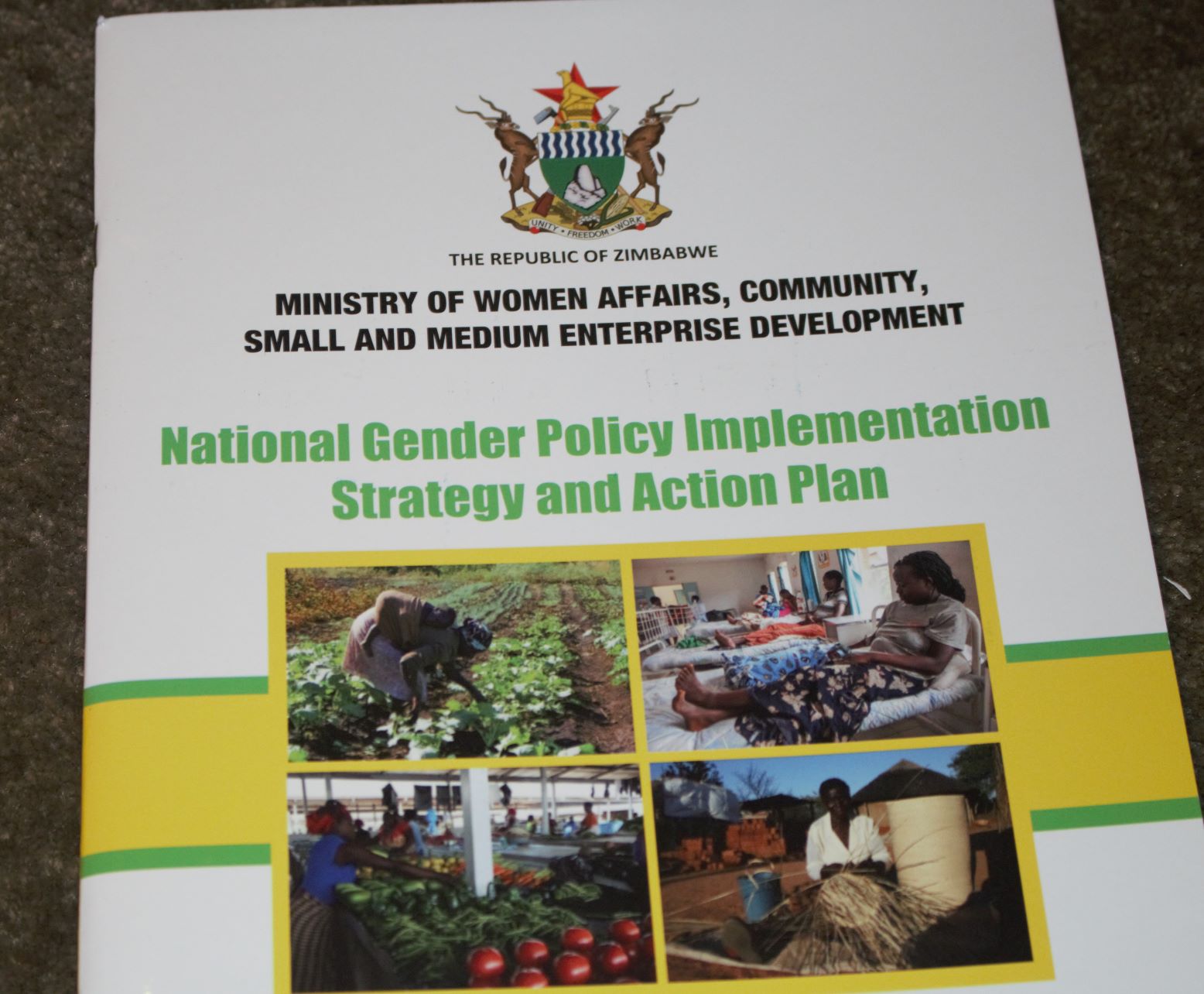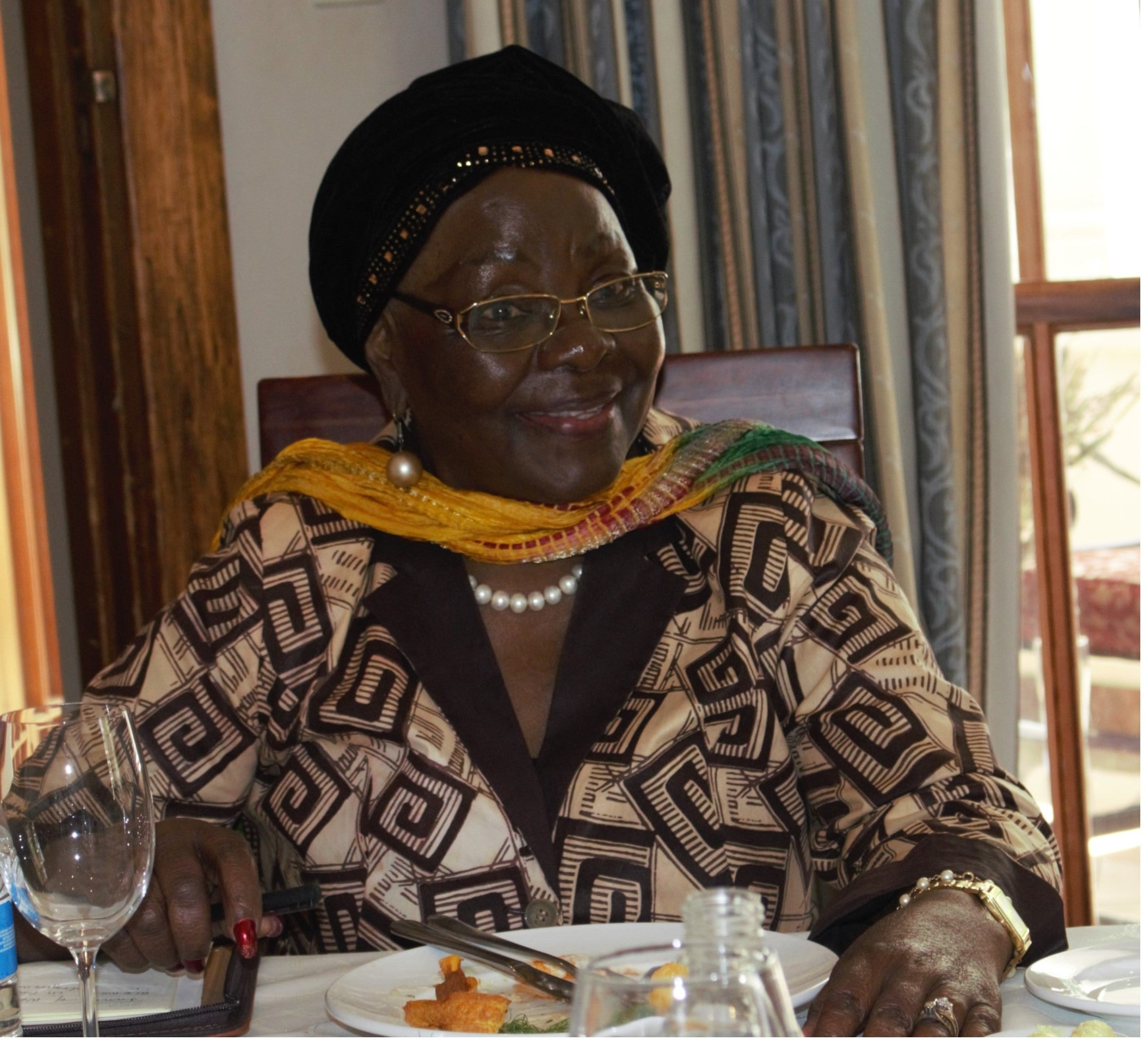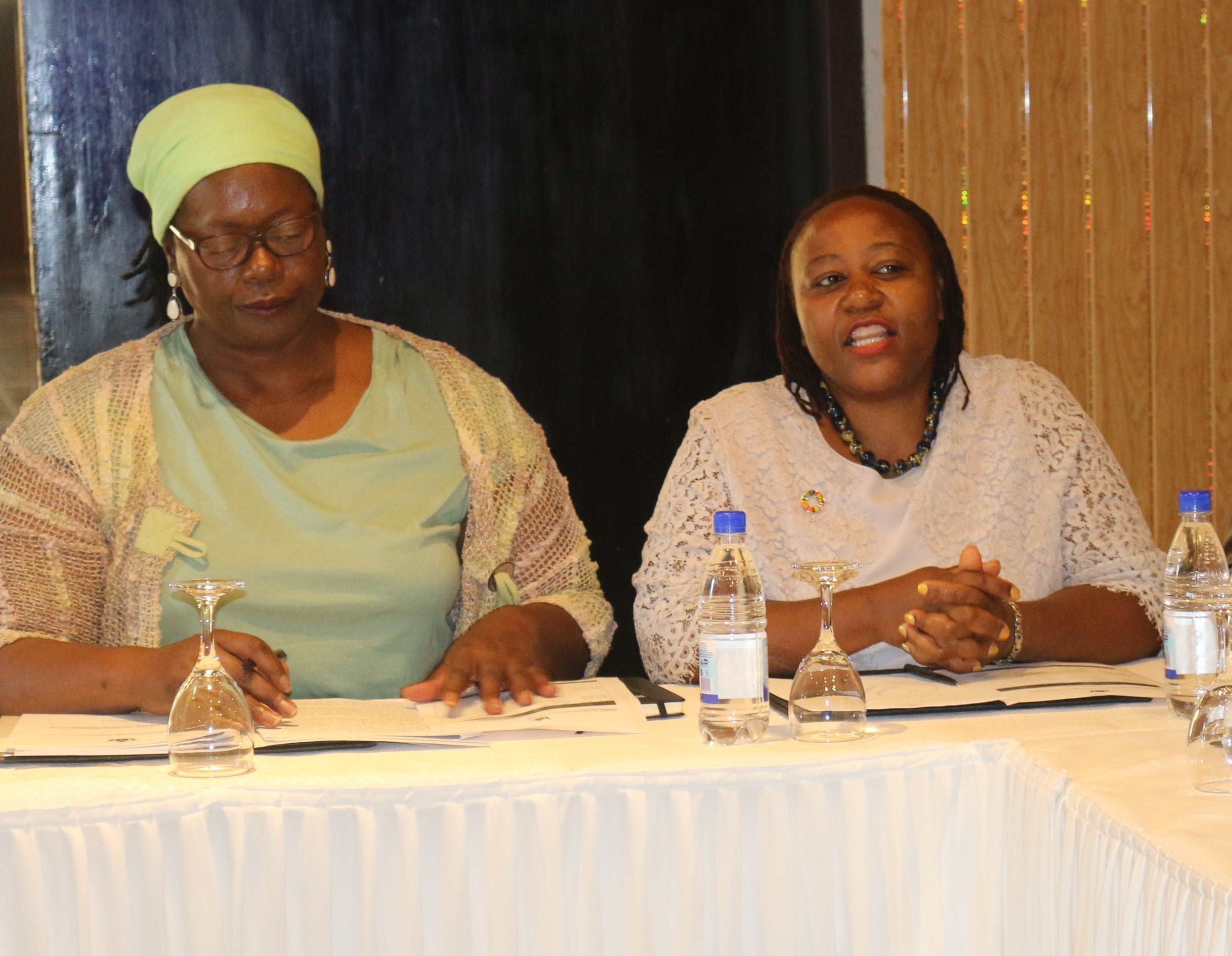Zimbabwe's Multi-stakeholders' Approach to Achieve Gender Equality
Date:

The National Gender policy Implementation Strategy and Action Plan
© UN Women Photo by Itayi Usaiwevhu
On July 2017 the government of Zimbabwe revised and launched the National Gender Policy, which provides a framework for implementation of new provisions of the constitution and subsequent laws and policies adopted. In line with this, on the 23rd of October this year Zimbabwe launched the National Gender Policy Implementation Strategy and Action Plan to increase stakeholders’ commitment to achieving gender equality and women empowerment. It recognizes that sustainable development must be inclusive and people centred, benefiting and involving all people and vulnerable groups.
The development of the Implementation Strategy and Action Plan was a culmination of consultations that utilized the expertise within the UN System, government, civil society organizations, private sector, academia and development partners.
Speaking at the launch the Minister of Women Affairs, Community, Small and Medium Enterprises Development Dr Sithembiso Nyoni said it will strengthen coordination through the involvement of various government ministries, UN Agencies and Civil Society Organizations.

Dr Sithembiso Nyoni - Zimbabwe’s Minister of Women Affairs, Community, Small and Medium Enterprises Development
© UN Women Photo by Itayi Usaiwevhu
“Zimbabwe has made strides to ensure gender equality through the constitution, but we would like to make further strides through implementation as we still have impunity when it comes to recognition of the need for gender equality”, said Dr Nyoni.
The Plan of Action defines systematic activities for each of the following 10 thematic areas:
- Gender, Constitutional and Legal Rights
- Gender and Economic Empowerment
- Gender, Politics and Decision Making
- Gender Education and Training
- Gender and Health
- Gender Based Violence
- Gender, Environment and Climate Change
- Gender, Media, Information, Communication and Technology
- Gender, Culture and Religion
- Gender and Disability
"It is important that we start implementing and not just celebrating policies as the strategy translates the gender equality provisions of the National Gender Policy into workable actions”, Dr Nyoni added.
The 17 Sustainable Development Goals (SDGs) adopted by all United Nations Member States in 2105 was a universal call to action to end poverty, protect the planet and ensure people enjoy peace and prosperity by 2030. The 17th SDG calls on UN member states to “Strengthen the means of implementation and revitalize the global partnership for sustainable development”. UN Women Deputy Country Representative of Zimbabwe, Caroline Nyamayemombe outlined that Zimbabwe’s Implementation Strategy and Action Plan by the inclusion of multi-stakeholder partnerships provides a coordination framework that ensures policy and institutional coherence and is in line with goal 17 of the Sustainable Development Goals (SDG).

RIGHT - Caroline Nyamayemombe – UN Women Zimbabwe, Deputy Country Representative
© UN Women Photo by Itayi Usaiwevhu
“The launch is important particularly in the light of the 2030 agenda, where we can use it to advocate for allocation of resources. There are a lot of aspirations articulated in policy documents which have failed to see the light of day due to lack of resources. We are hopeful that this document is critical in informing and placing priorities to advance gender equality in the country,” said UN Women Deputy Country Representative.
Dr Nyoni acknowledged the stakeholders who supported the process. “I would like to express my appreciation to all stakeholders, women’s organizations’ and UN agencies for making this implementation strategy a reality. I want to particularly thank UN Women for providing technical and financial support towards the development of the strategy.”